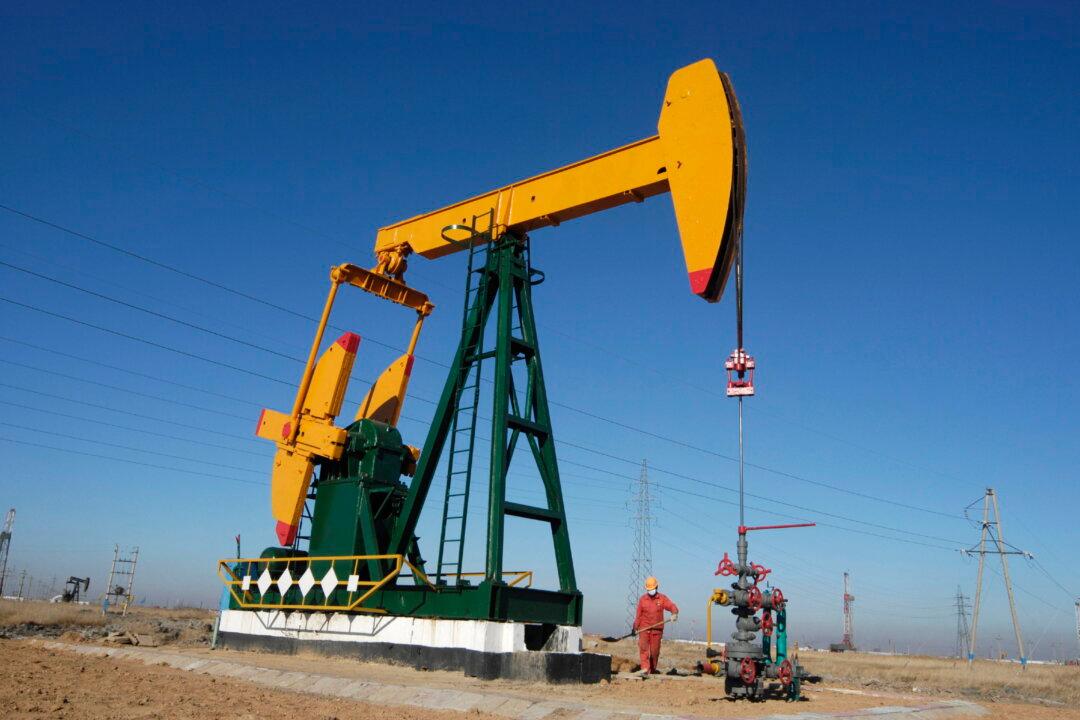LONDON—Oil prices rose by over 1 percent on Thursday after the International Energy Agency raised its oil demand growth forecast for this year as soaring gas prices drive some consumers to switch to oil.
Brent crude futures gained $1.04, or 1.1 percent, to $98.44 a barrel by 0949 GMT, while U.S. West Texas Intermediate crude futures rose $1.03, or 1.1 percent, to $92.96.





